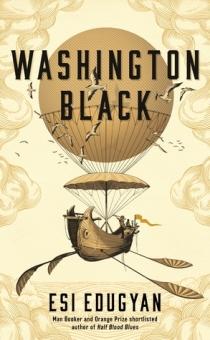

★★★★
I was lucky enough to win this book in a competition run by Bibliobeth way back at the start of the year, and I’m so glad I finally picked it up. For me this book had echoes of Rebecca – high praise given it’s one of my favourite books – not in the sense that it is an altered version of it, but in the characters and the general atmosphere. Rather than being a poor-mans du Maurier, Stacey Halls takes all of that style and puts it in her own setting and it really, really worked for me.
In my opinion there are not enough books about witches – witches of the historical variety that is – and certainly not enough books about British witches. This book is based around the story of Fleetwood Shuttleworth, and is a fictional account of her life around the time of the Pendle witch trials in Lancashire. At the start of the book she is 17 and pregnant for the fourth time, but fearing for her life after her last 3 pregnancies – which ended in miscarriage and stillbirth – she chooses to hire a midwife of her choosing, Alice Grey. Alice is deeply entwined with those accused of witchcraft and over the course of the novel (and Fleetwood’s pregnancy) we unravel her story, and with it we watch Fleetwood grow. Fleetwood’s pregnancy goes on, along with the witch trials, and both reach their peak at the same time – Fleetwood going in to labour the night before the accused women take the stand.
Something I loved in this book was the friendship which developed between Fleetwood and Alice. Two women of very different upbringings and classes, yet they found this very unorthodox friendship and working relationship. The love that Fleetwood has for Alice – someone she calls her first friend of her own choosing – is special. I love a good friendship in a book, especially one which is so unlikely. The transformations in both Fleetwood and Alice over this book are something to love – Fleetwood was a bit of an airheaded socialite-wife who becomes a mature woman, a woman who fights for her child and her friend; and Fleetwood’s belief in the unassuming Alice gives her the confidence to grow. The true magic of this book is friendship – not witchcraft.
Womanhood is something that is also explored in this book – what it means to be a woman in 1612. At one point Fleetwood says that she “wouldn’t wish a girls life on anyone” and in a time when women are treated as objects, that isn’t exactly a surprise. Fleetwood, while still being a woman of the 17th century, has a (slightly) more modern monologue which enables these themes to be explored. She points out that most of the women accused of witchcraft are just poor women, using what skills they have to make their way in the world, they were mistresses to a man who wanted them to disappear, most accusations of witchcraft cam from a person of standing – and who was going to be believed in a public arena?
Having mentioned it, I can’t not go back to it – the echoes of Rebecca. Fleetwood reminds me very much of Mrs de Winter, and her husband of Maxim. Their relationship is very similar to the relationship between Mr and Mrs de Winter once they’re back at Manderley, a husband keeping secrets and a wife trying to unravel a mystery. We have a woman in the background who, while alive, torments Fleetwood much the same way that Rebecca did Mrs de Winter. There’s also a token Mrs Danvers like character, and even a dog who is similar to Jasper. All in all, there are a lot of similarities which I actually really loved because this was very much its own story, but I can see a lot of inspiration there and (for once) it’s done very well.
Ultimately this is a fantastic debut, and Stacey Halls is an author I will keenly await a second book from. I also think this would be a really good book-club book. For me, there was a few things lacking which is why this is a 3/4 star book opposed to a 5 star book. But make no mistake, I really enjoyed this and I would recommend it (especially alongside a read of Rebecca! Just for the parallels!)
















